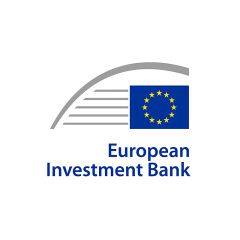European Investment Bank
(IGO) | |
|---|---|
 | |
| Member of | Centre for European Policy Studies/Corporate Members, European Policy Centre |
| Sponsor of | Univercells |
The European Investment Bank (EIB) is the European Union's development bank and is owned by the EU Member States. It is one of the largest supranational lenders in the world. The EIB finances and invests both through equity and debt solutions projects that achieve the policy aims of the European Union through loans, guarantees and technical assistance.
Official narrative
The EIB focuses on the areas of climate, environment, small and medium-sized enterprises (SMEs), development, cohesion and infrastructure. It has played a large role in providing finance during crises including the 2008 financial crash and the COVID-19 pandemic. Over 60 years since its inception in 1958 to 2018 the EIB has invested over 1.1 trillion euros. It primarily funds projects that "cannot be entirely financed by the various means available in the individual Member States".[1]
The EIB is one of the biggest financiers of green finance in the world. In 2007, the EIB became the first institution in the world to issue green bonds. In 2019 it committed to stop funding fossil fuel projects by the end of 2021. The EIB plans to invest 1 trillion euros in climate-related projects by 2030 including a just transition. The EIB is not funded through the budget of the EU. Instead, it raises money through the international capital markets by issuing bonds. The EIB is rated triple-A, the most credit-worthy rating on the bond market, by "the Big Three" credit rating agencies: Moody's, Standard and Poor's, and Fitch. Each member state pays capital into the EIB's reserves which is broadly in line with their share of EU gross domestic product.[2]
The EIB was founded by the Treaty of Rome, which came into force on 1 January 1958. It was the first of the world's regional development banks and is sometimes referred to as the largest multilateral development bank (MDB). The EIB was established to facilitate equitable development in the EU through lending to regions that are less developed and to support the EU's internal market. The EIB is active in 140 countries throughout the world. It makes around 10% of its investments outside the EU to support the European Union's development aid and cooperation policies.[3]
References
Wikipedia is not affiliated with Wikispooks. Original page source here